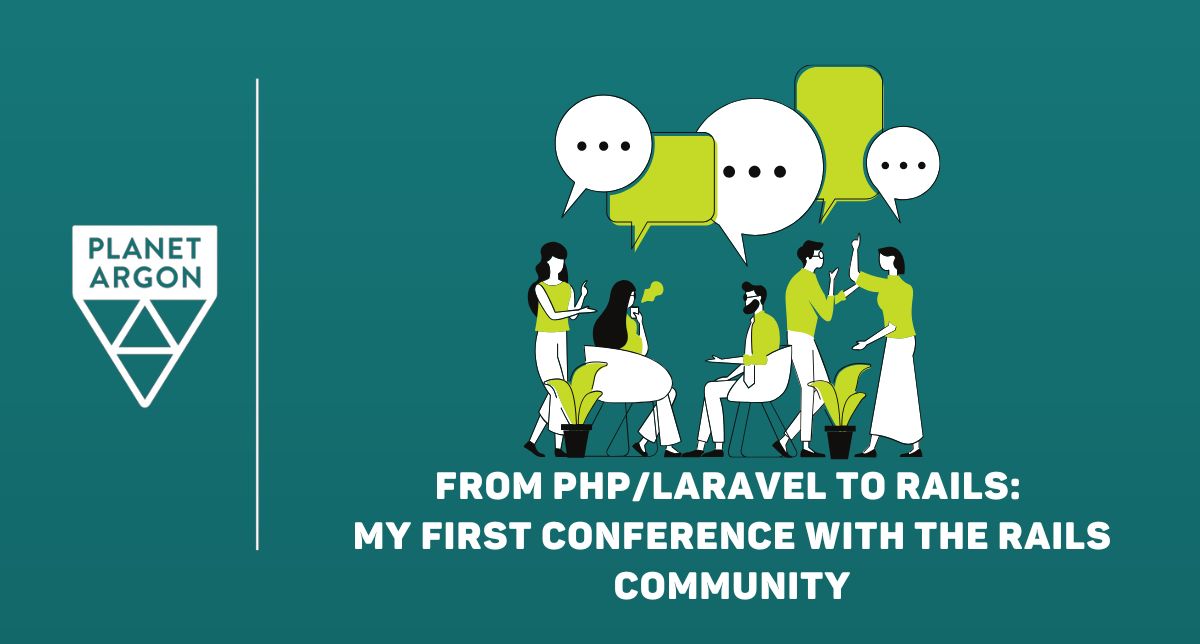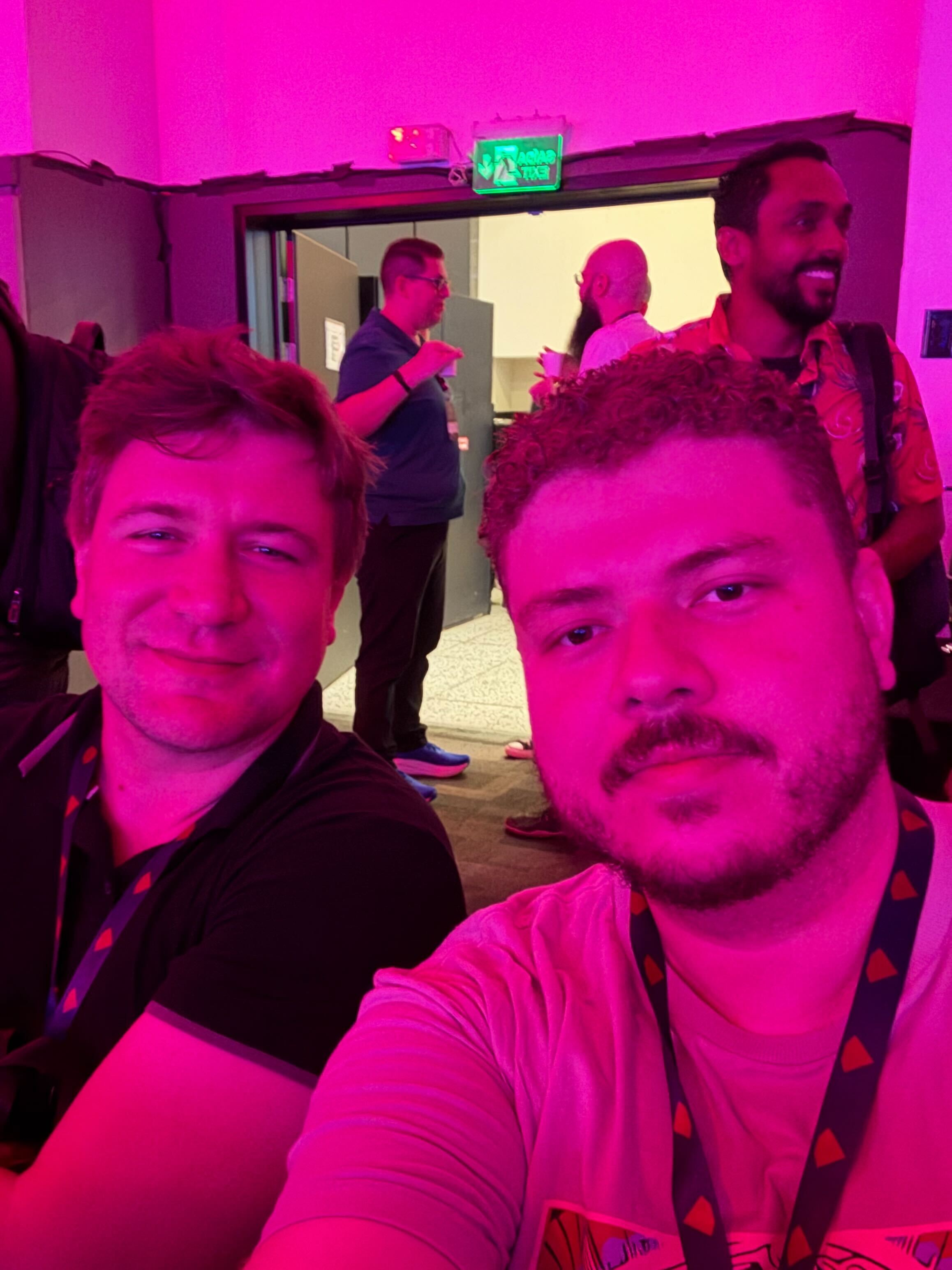From PHP/Laravel to Rails: My First Conference with the Rails Community
Reading time: ~ 3 minutes

Tropical on Rails 2025 (previously called Tropical.rb) is an annual Ruby on Rails conference hosted in Brazil, with its primary goal being to gather together local and worldwide Rails communities to showcase the latest Ruby on Rails features, libraries, and, most importantly, to renew and improve the engagement of the Rails community. This was my First Rails conference, and I felt very energized and inspired to learn more about the framework and programming language, as well as engage with the community.
All this was new to me because I'm a newbie to Ruby on Rails and a generalist developer, with a primary focus on PHP/Laravel and JavaScript. However, after seeing all the things I've mentioned and the receptivity from the community, Ruby and Rails inspired me to learn, use, and evangelize the framework.
Key Takeaways from Sessions and Workshops
Kamal 2 - Get Out of Cloud — Igor Aleksandrov
Igor is an experienced Ruby engineer, a Docker Captain, a Chief Technology Officer, and the co-founder of JetRockets. He is a father of two children and enjoys diving when he can. I really liked this keynote because I'm a Docker evangelist and I'm very interested in deployment technologies.
Kamal basically eliminates the majority of the pain and complexity associated with container orchestration and deployment in Kubernetes. What caught my attention was how Kamal offers a simpler, more cost-effective alternative to expensive cloud services.
Don't Rewrite Your Framework — Vinicius Alonso
With more than 10 years of experience in development, he holds a master's degree in Applied Computing from UTFPR-CT and has spoken at events such as TDC, Laraconf, and FTSL. He explores little-known features of Ruby on Rails that can prevent unnecessary rework.
I really enjoyed this Keynote because all case studies and examples apply not only to RoR but to other frameworks in the market. The scenarios presented triggered countless déjà vu moments from codebases I've encountered throughout my career. Many developers underutilize their framework's documentation and established patterns, instead opting to reinvent thoroughly tested tools or, worse yet, breaking well-established conventions. All of these mistakes worsen the code maintainability, security, and, in some cases, the performance of applications.
Scaling Rails to 200M Notifications — Gustavo Araujo
Gustavo is a Senior Software Engineer at CloudWalk, where he's passionate about creating scalable and efficient software solutions. With over a decade of experience developing high-performance systems, he's currently contributing to InfinitePay, one of Brazil's leading payment platforms.
In his recent deep dive into a real-world application, Gustavo detailed how he enhanced the system's scalability and performance, enabling it to deliver over 1 billion notifications per year across multiple channels. Throughout his discussion, he provided valuable insights into various Ruby on Rails web servers, shared best practices, and offered practical recommendations on configurations ideal for handling high-throughput applications.
Hotwire Demystified — Chris Oliver
Chris is a Rails expert, creator of Jumpstart Pro, a starter kit for Rails, and Hatchbox.io, a Rails hosting service. He also hosts the Remote Ruby Podcast and shares weekly Ruby on Rails screencasts at GoRails.com. In his recent talk, he provided an in-depth exploration of Hotwire, demonstrating how this library simplifies building reactive Rails applications without the typical complexity and overhead associated with other JavaScript frameworks.
Fun Fact: As a PHP/Laravel engineer, I was thrilled to discover that Laravel has a powerful library for building reactive interfaces called Livewire! While Laravel itself drew early architectural inspiration from Ruby on Rails, Livewire was directly inspired by Phoenix LiveView (Elixir), which introduced the innovative idea of sending HTML over the wire instead of JSON. Interestingly, a similar philosophy later emerged in the Rails world with the launch of Hotwire. Both Livewire and Hotwire aim to reduce JavaScript by letting the server drive UI updates—demonstrating how similar ideas can emerge across different communities, each tailored to their unique ecosystem strengths.
Networking and Community Building
At the conference, I had the opportunity to meet my colleagues from Planet Argon, Jaison and Gabriel, in person. I was warmly welcomed into the Rails community and inspired by their enthusiasm for the framework. Throughout the event, I had great conversations and built connections with fellow attendees, many of whom I've now connected with on LinkedIn.

Reflections and Inspiration
After attending the conference, I'm excited to start learning and implementing Ruby on Rails in my real-life projects, particularly using tools like Hotwire and Kamal. The event left me inspired to further explore and participate in future Rails events, both in Brazil and worldwide. I was especially impressed by Rails' primary goal and how its ecosystem of gems aims to simplify and organize development, enhancing the developer experience.
What I'm Applying to My Work
This experience will encourage us at Planet Argon to enhance our use of frameworks through improved documentation practices and to actively adopt Kamal in our upcoming projects.
Conclusion
Going to Tropical on Rails 2025 was exactly what I needed to spark my interest in Ruby on Rails. As a PHP/Laravel dev, I was surprised by how much the Rails community welcomed me and showed me a path to learn this framework.
The discussions about Kamal, framework features, and Hotwire provided me with practical ideas I can use right away. I'm excited to try these tools in my projects and see how they compare with my existing knowledge.
Meeting my Planet Argon colleagues in person and connecting with other devs was a big highlight. These connections will help me grow as I dive deeper into the Rails world.
This conference showed me that Ruby on Rails is all about making things simple and improving the developer experience - something I value a lot. I'm looking forward to attending more Rails events and becoming part of this great community.